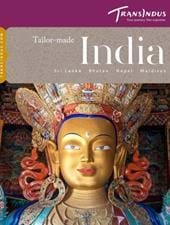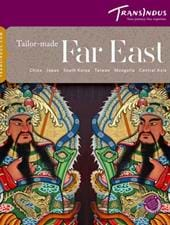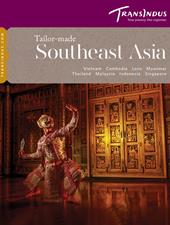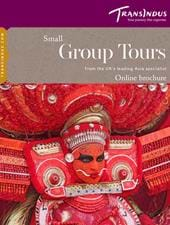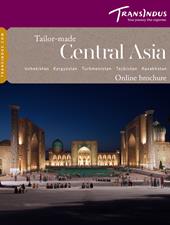Time zone: UTC +6.5 hours
Flying Time: 14.5 hours
Capital: Naypyidaw
Currency
Local currency in Myanmar (Burma) is the Kyat, which can be used to pay for all goods and services.
The best form of currency to take on your trip is US Dollars, in cash. Please seek assistance from our local guides in converting your foreign currency into local currency at free-market rates. When on your own, avoid changing currency outside your hotel. It is advisable to exchange small quantities at a time as any unused Kyat cannot be reconverted back into foreign currency upon departure. It is also preferable if the dollar bills are in good to pristine condition as many businesses may refuse to accept much used or worn out notes. A few hotels in Burma accept Credit cards and Dollar Travellers cheques, usually with a hefty surcharge. These facilities tend to get revoked without prior notice so should not be relied on for funds during your stay.
Burma now has ATM machines in Yangon and Mandalay where you can get local currency using a Mastercard. Please be careful not to get too much local currency as you will not be able to exchange it for dollars on your return. More information on the ATMs can be had at http://www.cbbankmm.com
Food and Healthcare
Myanmar (Burma) is a tropical destination, so be sure to drink plenty of fluid to prevent heatstroke and dehydration. Avoid drinking tap water and taking ice in drinks. Stick to bottled water (or boiled/UV treated water available at the hotel) and ensure that the seal is opened by you/in your presence. Aerated waters (bottled soft drinks) are fine.
Cuisine in Myanmar (Burma) has strong Indian, Chinese and Thai influences, with plenty of fresh, spicy flavours and wonderful snacks. Rice is the main staple and usually served with curry. Beef and Pork is consumed to a lesser degree than neighbouring Thailand and China, due to religious preferences. Seafood is popular in the coastal areas and freshwater fish and shrimps is common in the more inland areas. Burmese cuisine also contains a variety of salads centred on one major ingredient, ranging from rice, noodles, glass noodles, vermicelli, to potato, ginger, tomato, pickled tea leaves, and ngapi or fish paste. These salads are popular as fast foods in Burmese cities.You will also find Western alternatives available at many restaurants and hotels. Please note, meals during your trek will be quite basic and simple.
Eat moderately for the first few days. Allow your system to get used to the changes. Be cautious with local milk products like cheese, cream and ice-cream. It is also advisable to eat only cooked vegetables and avoid green salads. We recommend you carry with you a small supply of basic health care medication such as travel sickness tablets, anti-diarrhoea tablets, antacids for indigestion, insect repellent, sun creams and selected antibiotics after discussion with your doctor. Some of these items may be difficult to find in Myanmar (Burma) and the security provided by brands one is used to is reassuring. We strongly recommend that all travellers are properly insured for the holiday. While taking insurance, please check that it includes repatriation costs.
Clothing and Climate
Myanmar (Burma) has three distinct seasons, with the dry and cool winter months from November to March. Temperatures start to rise in early March and it can get up to 40º C in Yangon, remaining this way until the rains, which start in May and last until October. Mandalay and upper central Myanmar (Burma) remain drier during July to September.
The hill stations of Kalaw and Maymyo in central Myanmar (Burma) tend to be cooler and warm clothing should be carried if travelling in November to February.
In general, during the day it is best to wear light, comfortable cottons with a pair of good ventilated walking shoes. If your trip to Myanmar (Burma) includes stops at beaches and mountainous areas, you will need clothes for all temperatures. A swimsuit, sunglasses, a hat, t-shirts, shorts that are not too revealing, long trousers, some light-weight, long-sleeved tops and a light jacket that is wind and rain-resistant will get you through most trips.
At the monuments and pagodas, it is advisable to avoid sleeveless tops and short skirts. You may also be asked to remove your socks and shoes. Slip-on shoes or sandals are useful for visits to pagodas.
Most hotels, including the more exclusive ones, do not insist on formal wear in restaurants and smart casuals are acceptable.
Shopping in Myanmar (Burma)
Myanmar (Burma) provides great opportunities for shopping, including beautiful tapestries and fabrics, it famous lacquer-ware, silk clothing, painted umbrellas, silverware, woodcarvings, puppets, jewellery and gemstones (particularly Burmese rubies), Shan bags and much more. If asked, our local agents will advise on where best to buy particular items. Please be careful while buying gems, these are often of a lower value than advertised, even from government approved shops.
Although uncommon, be prepared for the occasional mild pressure selling from some guides. Although they will generally take you to respectable establishments offering reasonable quality, it is quite likely that they have a vested interest. If you are not interested, and if the guide is particularly insistent, do not hesitate to refuse.
When purchasing an expensive item, always check the level of duty payable in the UK on your import. Please remember Customs Duty and VAT is payable on all goods above the value of £340 per person, even if an item is exempt from other import duties.
Please note, TransIndus does not endorse any shop or factory outlet. We, or any of our associate offices, are not responsible for any shopping and related problems, although we assure you of any help that we can provide.
Voltage
The electric voltage in Burma is supplied at 220 volt AC. Most English electric appliances work well, but a universal adaptor is needed.
Airport Departure Tax
The international departure tax of US$10 is payable locally at Yangon airport. There is also a new domestic departure tax of 1000Kyat (approximately £1) payable locally in the local currency.
Trekking
If going on Tribal village treks, please be aware that village houses are very basic accommodation with communal toilets. There is usually no electricity in these villages and it is advisable to carry flashlights. You should also carry your own sleeping bags as these may not be provided at your home stays.
